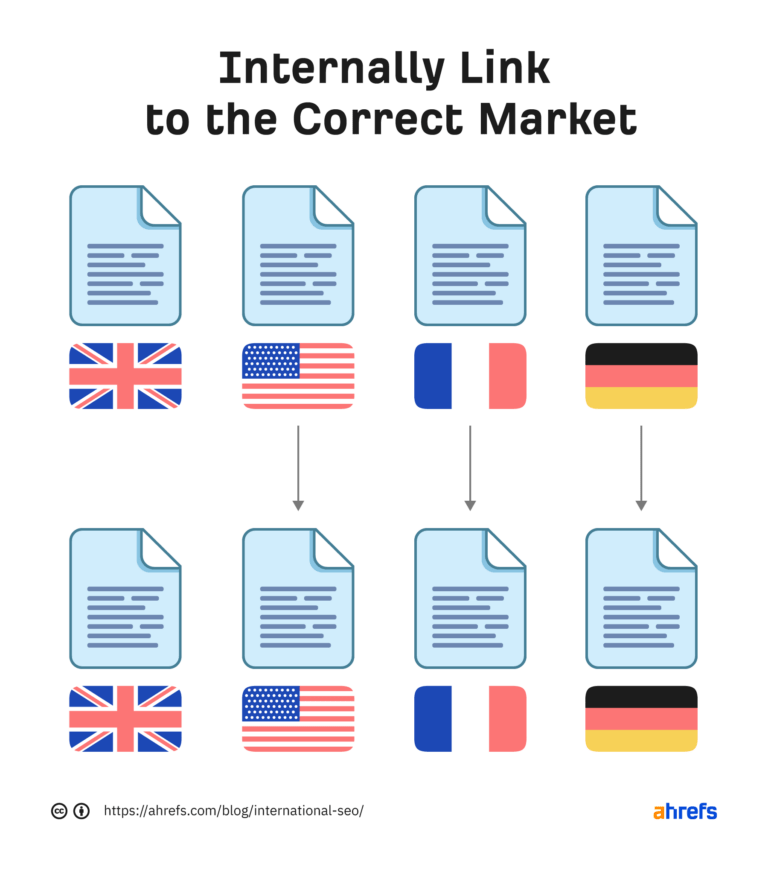Go Global with Confidence: International SEO Ideal Practices
Go Global with Confidence: International SEO Ideal Practices
Blog Article
Browsing the Digital Landscape: Leveraging International SEO for Cross-Border Success
In today's interconnected digital globe, companies are increasingly looking beyond borders to touch right into international markets. Leveraging search engine optimization (SEO) strategies tailored for global audiences is vital for achieving cross-border success. The complexity of navigating the electronic landscape on a global scale demands a nuanced strategy, from understanding the principles of International search engine optimization to carrying out geotargeting and multilingual keyword approaches. As business make every effort to expand their reach and presence throughout various areas, maximizing web site structures and checking cross-border performance become crucial components of a successful global search engine optimization technique.
Understanding International SEO Basics
Navigating the intricacies of worldwide SEO needs a solid grasp of basic concepts to successfully expand on the internet presence throughout borders. One important facet of international SEO is understanding the value of localization.
In addition, having a clear understanding of geo-targeting is essential. This involves showing to internet search engine the specific nations or regions a site is targeting. Implementing hreflang tags is one way to connect this information, ensuring that the correct variation of a page shows up in the search engine result for an individual in a particular area.
Moreover, understanding the effect of neighborhood online search engine and social media platforms is crucial for global SEO success. While Google is dominant in many regions, countries like China have their very own search engines like Baidu, needing tailored approaches for each platform to make best use of on-line presence (International SEO).

Targeting Multilingual Key Words Techniques
Establishing multilingual key words techniques is important for efficiently reaching varied worldwide audiences and optimizing on-line presence across different etymological regions. When targeting multilingual key phrase approaches, it is essential to conduct detailed research to recognize the specific search terms and phrases utilized by the target audience in each linguistic region. This includes not only translating keywords but additionally taking into consideration cultural subtleties, regional languages, and search fads one-of-a-kind to every target market.
To create an effective multilingual key phrase technique, it is very important to focus on importance and search intent. Search phrases must line up with the material on the site and reverberate with the cultural context of the target market. Making use of tools such as Google Key Words Planner, SEMrush, or Ahrefs can aid determine high-performing key phrases in different languages and evaluate their search quantity and competitors level.
Moreover, surveillance and assessing the performance of multilingual keywords routinely is vital for enhancing and fine-tuning the method with time. By continually adapting to modifications in search habits and trends, organizations can boost their on-line visibility and bring in even more global traffic to their websites.
Applying Geotargeting and Hreflang Tags
When aiming to boost international SEO techniques, including geotargeting and hreflang tags is important for optimizing web site visibility across various regions. Geotargeting involves customizing material to particular locations, ensuring that customers in different locations get relevant info. By implementing geotargeting, businesses can improve their neighborhood search positions and draw in region-specific traffic.

Optimizing Website Framework for International Exposure
To even more boost global Search engine optimization strategies past geotargeting and hreflang tags, enhancing the internet site structure is crucial for achieving global exposure and optimizing reach throughout different areas. A well-structured website not just improves customer experience but also assists in search engine crawlers in recognizing the content and context of the website.
Furthermore, developing language-specific subdirectories or subdomains can help internet search engine provide the right variation of the web site to customers based on their language preferences, additionally improving the total individual experience. In addition, optimizing URL frameworks to include relevant key phrases and geotargeted terms can enhance the site's exposure in various regions. By structuring the site efficiently for worldwide target markets, companies can enhance their opportunities of drawing in global traffic and broadening their reach across boundaries.

Surveillance and Examining Cross-Border Performance
Efficient tracking and studying of cross-border performance is essential for assessing the success of international search engine optimization strategies and identifying chances for improvement in worldwide reach and presence. By closely tracking essential performance indications (KPIs) throughout different markets, services can acquire important insights anchor into the effectiveness of their cross-border search engine optimization initiatives. Keeping an eye on metrics such as natural traffic, keyword rankings, conversion rates, and bounce rates can offer a thorough sight of how well a site is carrying out in various areas.
Assessing cross-border performance information allows services to identify patterns, patterns, and locations for optimization. By comparing efficiency across various countries, regions, or languages, companies can pinpoint effective methods and localize content to much better accommodate particular target market. In addition, keeping an eye on cross-border efficiency allows companies to stay agile and receptive in the ever-evolving electronic landscape. Regular evaluation of SEO efficiency on a worldwide range ensures that firms can adapt their techniques rapidly to exploit on emerging chances try these out and maintain an one-upmanship in worldwide markets.
Conclusion
To conclude, global SEO plays an important function in attaining cross-border success by optimizing web sites for worldwide exposure, targeting multilingual key words strategies, carrying out geotargeting and hreflang tags, and keeping track of cross-border efficiency. By recognizing the principles of global search engine optimization and enhancing internet site structures appropriately, businesses can properly get to and engage with their target market across different regions and languages. This strategic approach is essential for increasing market reach and driving online development in today's electronic landscape.
Report this page